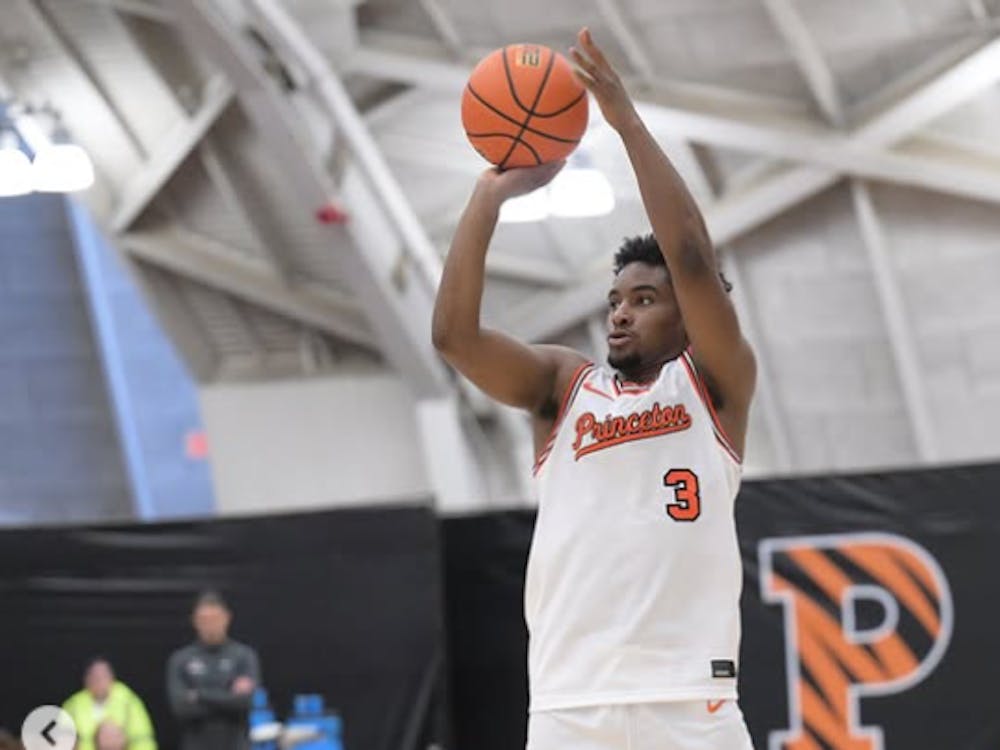Last weekend, President Trump unleashed a flood of tweets criticizing the protests of NFL players kneeling during the national anthem, even suggesting that kneeling players should be fired. The tweets reignited the debate that has boiled since Colin Kaepernick first knelt during the pregame national anthem last season.
Americans are divided on whether to regard the protest as a productive call to action or a disrespectful break from an important ritual. People perceive the protest in a variety of ways, but at its core the action is a form of protected free speech, and free speech must be encouraged and respected in itself. And while the debate may be national in scale, revolving around the NFL and other professional sports leagues, it is also relevant to college campuses and athletes. In the 2017 spring season, members of the Princeton University’s women’s basketball team regularly knelt on the court during the playing of the national anthem.
These protests aim to draw attention to the fact that, despite the great freedom and progress in our country, changes must still be made. Rather than passively participating in the national anthem, the protest disrupts routine and calmly brings to light the dissatisfaction with the current state of affairs.
In a speech in Alabama, Trump called the protests “a total disrespect of our heritage” and of “everything we stand for.” Many critics of the movement emphasize the disrespect toward veterans. Yet Veterans and current members of the armed forces, like the general public, express reactions along a spectrum of diverse responses. A photo of a 97-year-old WWII veteran went viral, showing him kneeling with the caption, “those kids have every right to protest.” On the other hand, veteran Leonard Rusher expressed mixed emotions, explaining that he was “saddened but not disgusted” by the protests. Rusher claimed to not like the protest, but he understands that their right to protest is what he fought for, saying, “they are expressing what that flag stands for, equal opportunity, equal justices, equal liberty, that’s what they are fighting for.” Veteran and current Spurs coach Gregg Popovich expressed support for his kneeling players and explained that “there has to be an uncomfortable element in the discourse for anything to change.”
Regardless of the protest’s reception amongst veterans, the flag is not an absolute symbol of the armed forces, and the protestors do not target the armed forces when protesting. The flag represents the government, our history, our politics, our culture, and so many aspects of life in America. The flag and the anthem are symbols with multiple meanings, and it is intellectually and politically cowardly to deliberately disregard the protestors’ intentions when criticizing it. In our academics, Princeton trains us to interpret a scholar’s argument in its most generous form before critiquing it; therefore, the intention of the protestors must be considered as or more heavily than all possible perceptions.
Beyond the details of the actual political point of the protests, many critics including fans and season ticket holders question the choice of venue, considering the athletic field and inappropriate arena for protest. While Attorney General Jeff Sessions adamantly defends free speech rights – especially on college campuses - he expressed, “There are many ways the players have, assets they have, that they can express their views without in effect denigrating the symbols of our nation.” In defense of his protest, Kaepernick explained, “To me, this is bigger than football and it would be selfish on my part to look the other way.” The protest points to an issue that is not confided to political or academic spheres, but a problem that permeates every aspect of life, and thus it should be called out in every aspect of life. Considering a game an inappropriate platform suggests that social inequality is not important enough an issue to breach the football stadium as a sacred arena of tradition.
Like their professional counterparts, college athletes hold a unique power and voice in guiding or promoting movements. As they compete, they hold the eyes of students, administrators, and often even the national spotlight. In this way, the athletes are given a platform that guarantees their actions are seen, because the University consistently promotes and advertises athletics. Though their complaints may not be addressed, their voices will be heard. For example, former Wisconsin basketball star Bronson Koenig protested the Dakota Access Pipeline at Standing Rock, and Georgetown rowers protested sweatshop labor practices by covering Nike logos. Granted, college football teams are in the locker room during the national anthem which evades the opportunity to participate in this particular protest.
Athletes on our campus should be encouraged to embrace their free speech rights to protest, rather than to separate their athletic career from their beliefs. While Trump encouraged NFL owners to fire protestors, the administration should commit to protect student-athlete protesters and make these commitments clear. As athletes dedicate hours and physical efforts to the playing field, they should be allowed to voice concerns in this same arena. Not only should student-athletes feel able to protest without threats from the administration, they should feel encouraged to do so. While a protest of this type, as we have seen on the national stage, can easily be misconstrued as anti-American, the controversy does not diminish students’ right to University support in their peaceful protest. Our administration should prioritize protections of free speech, not forced practices of patriotism.







